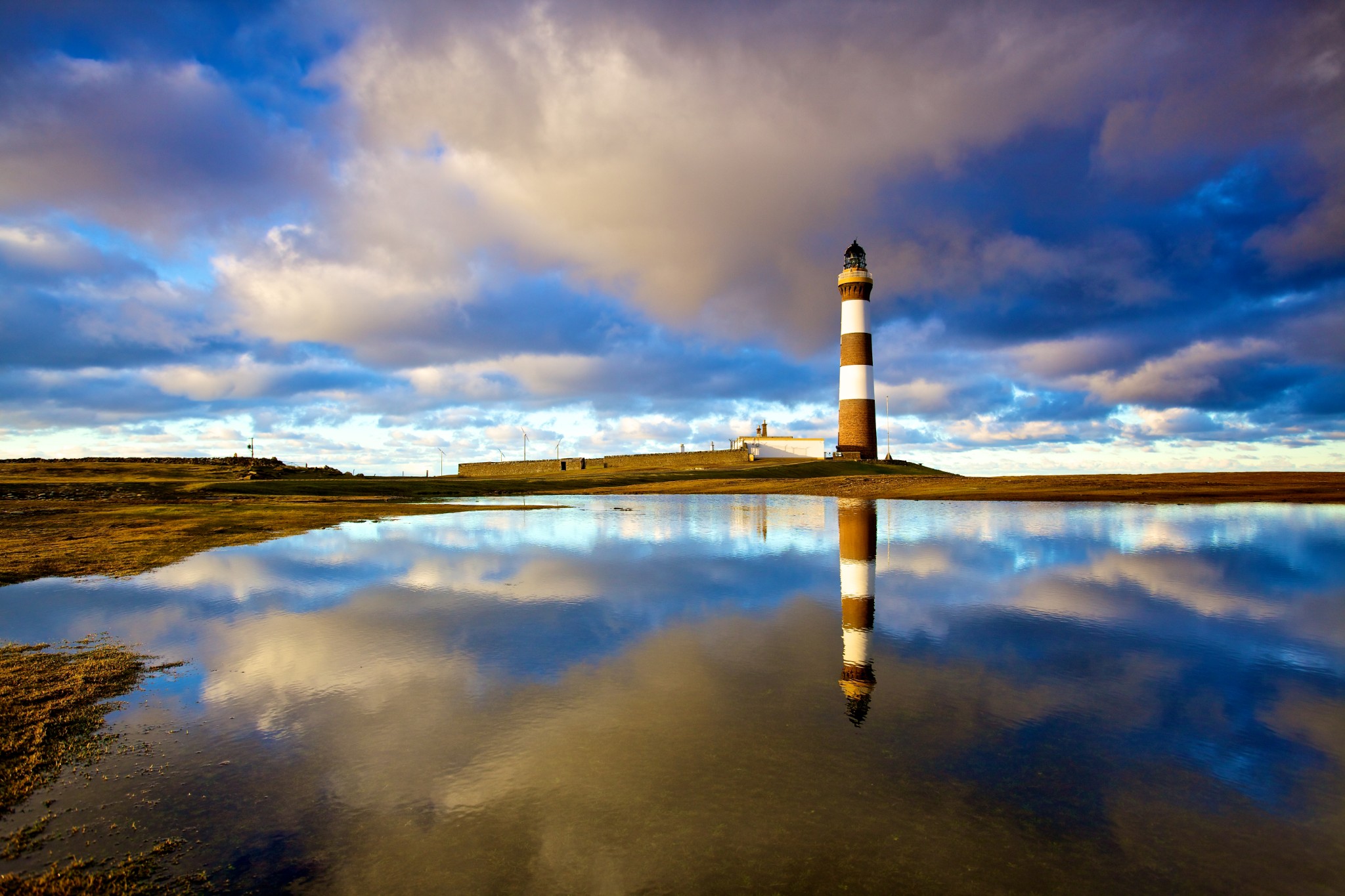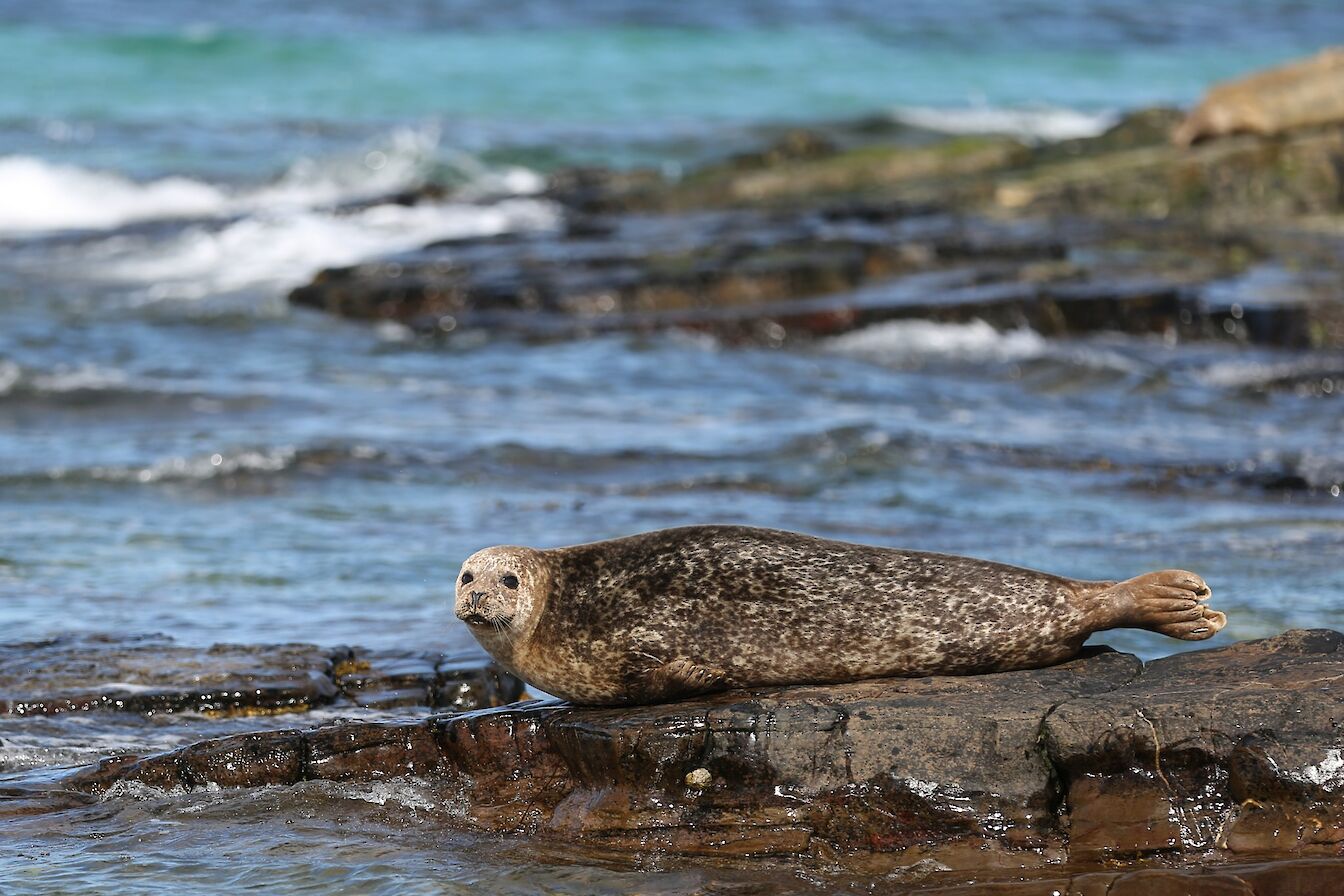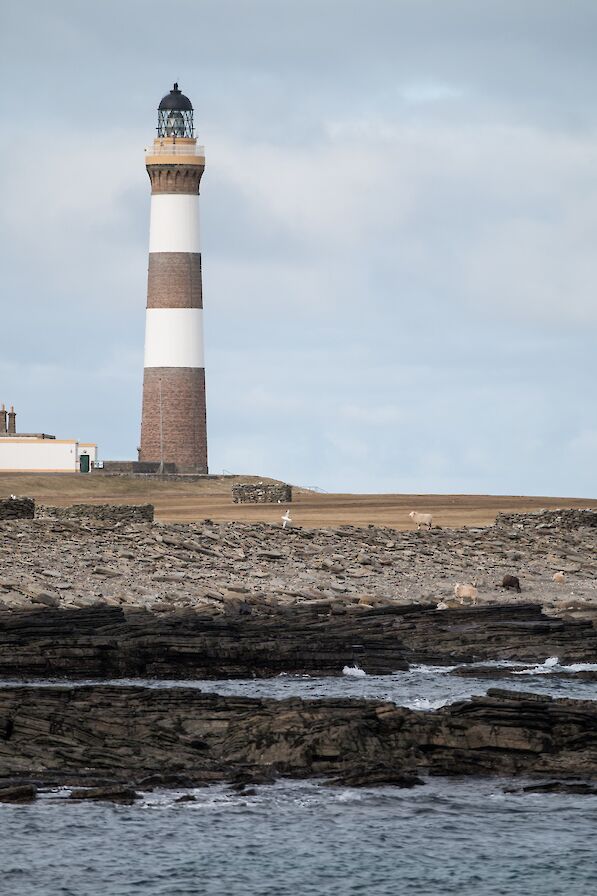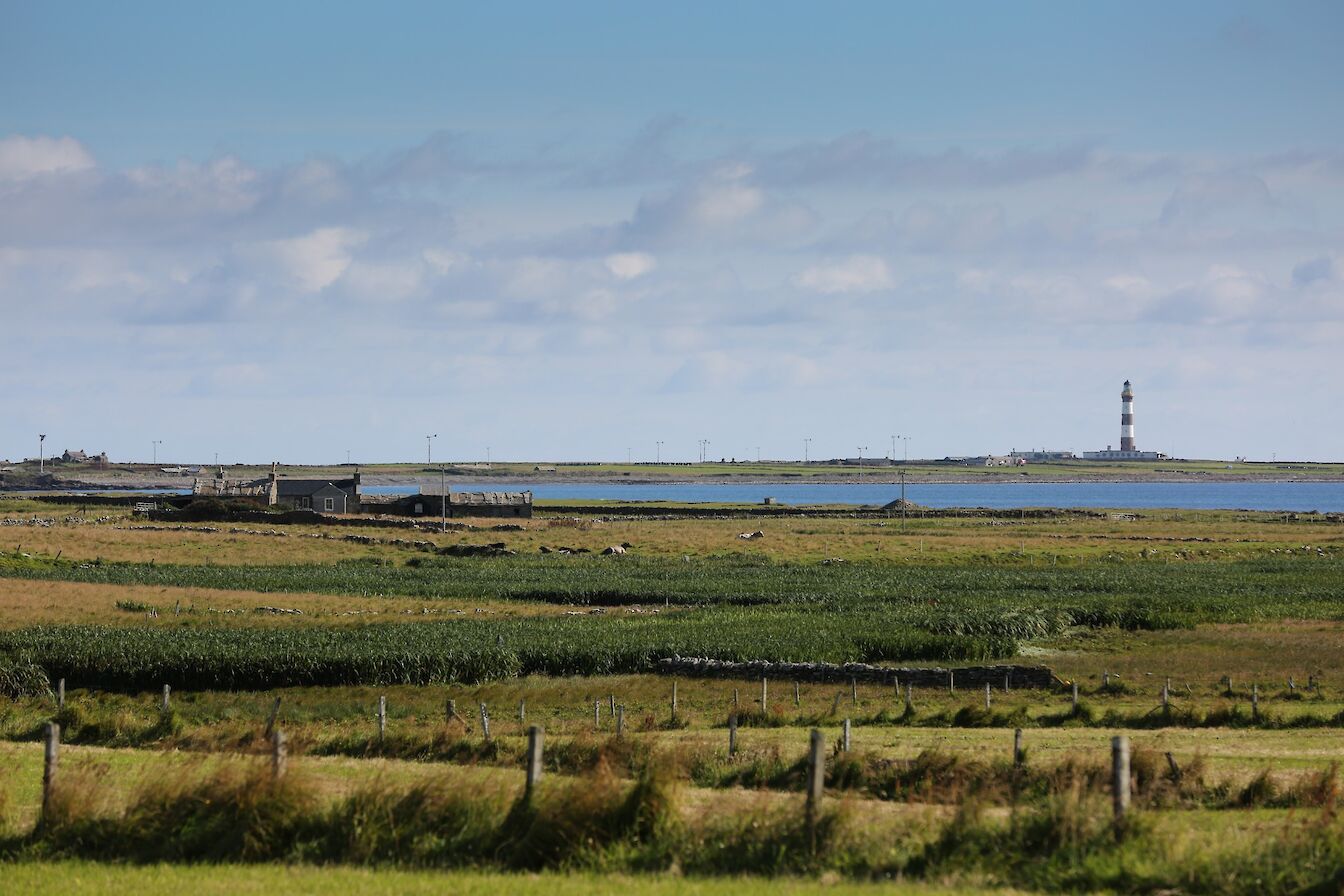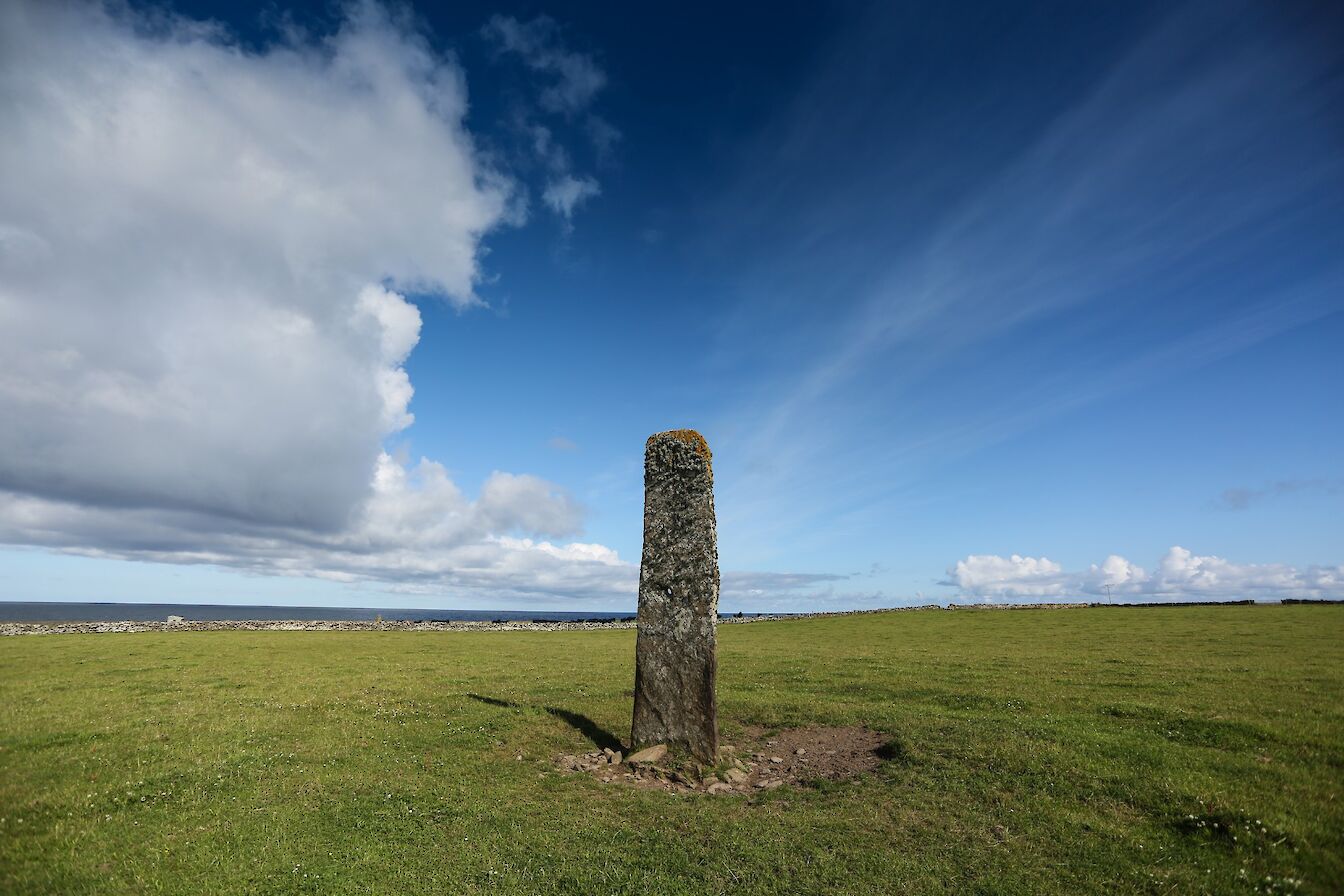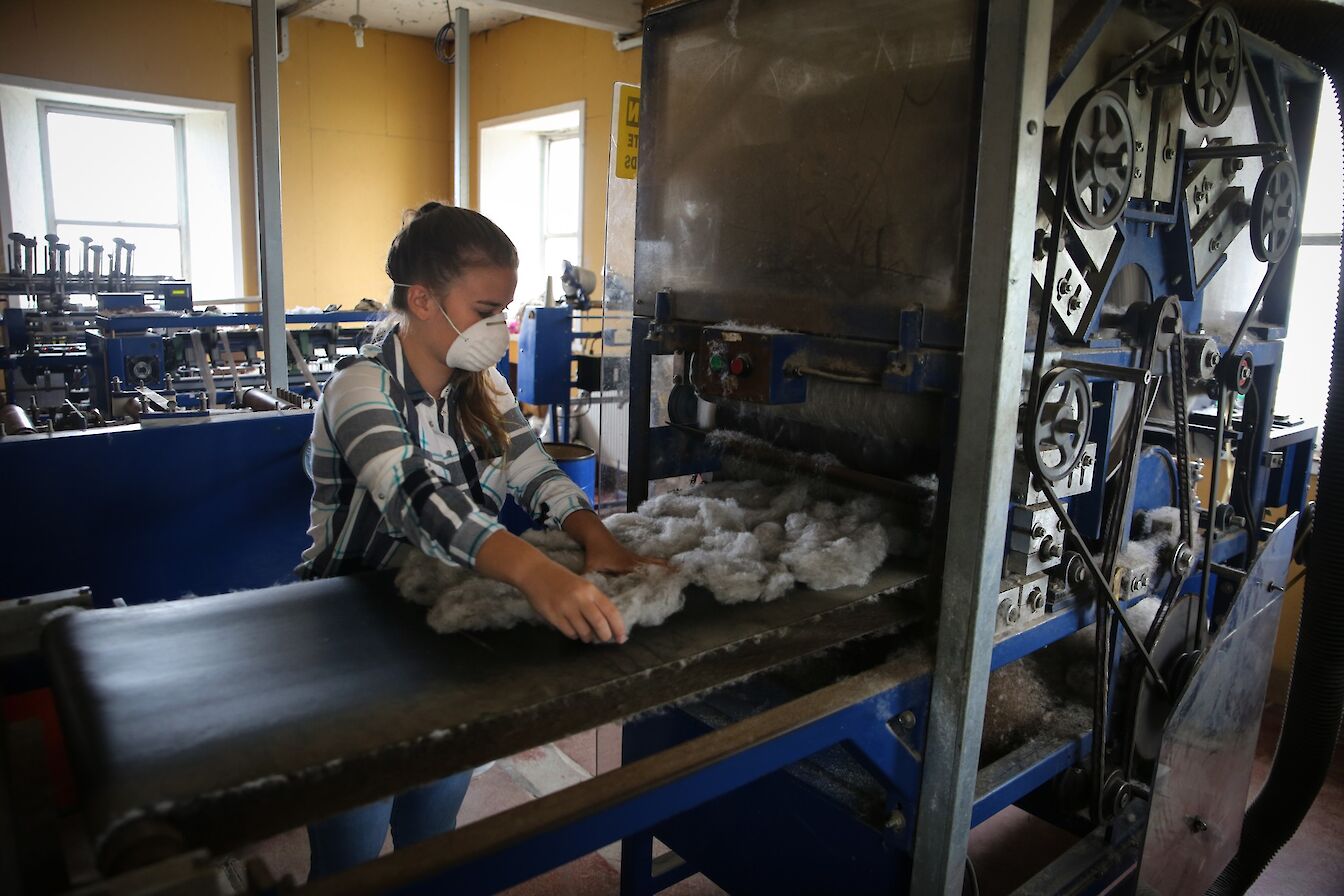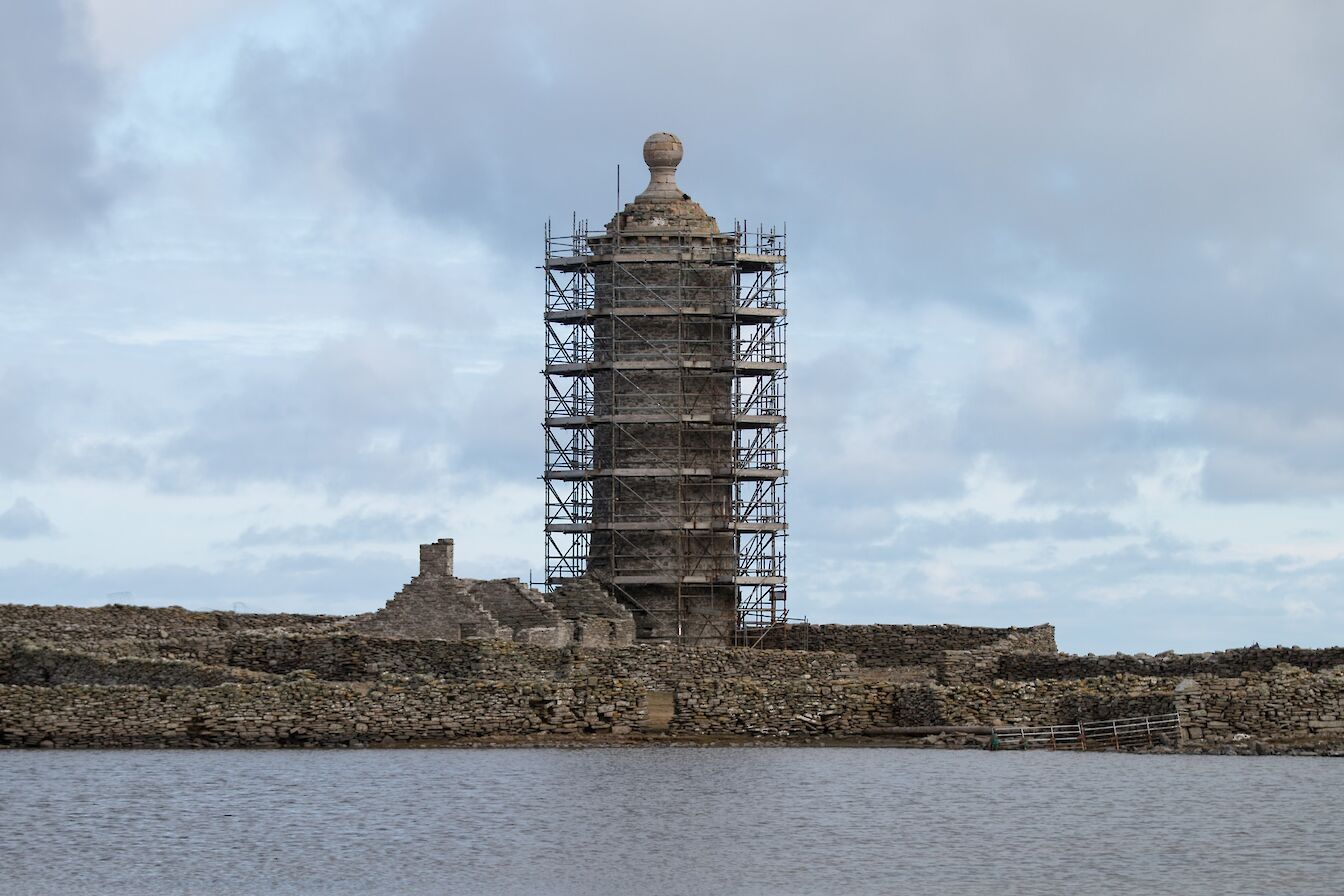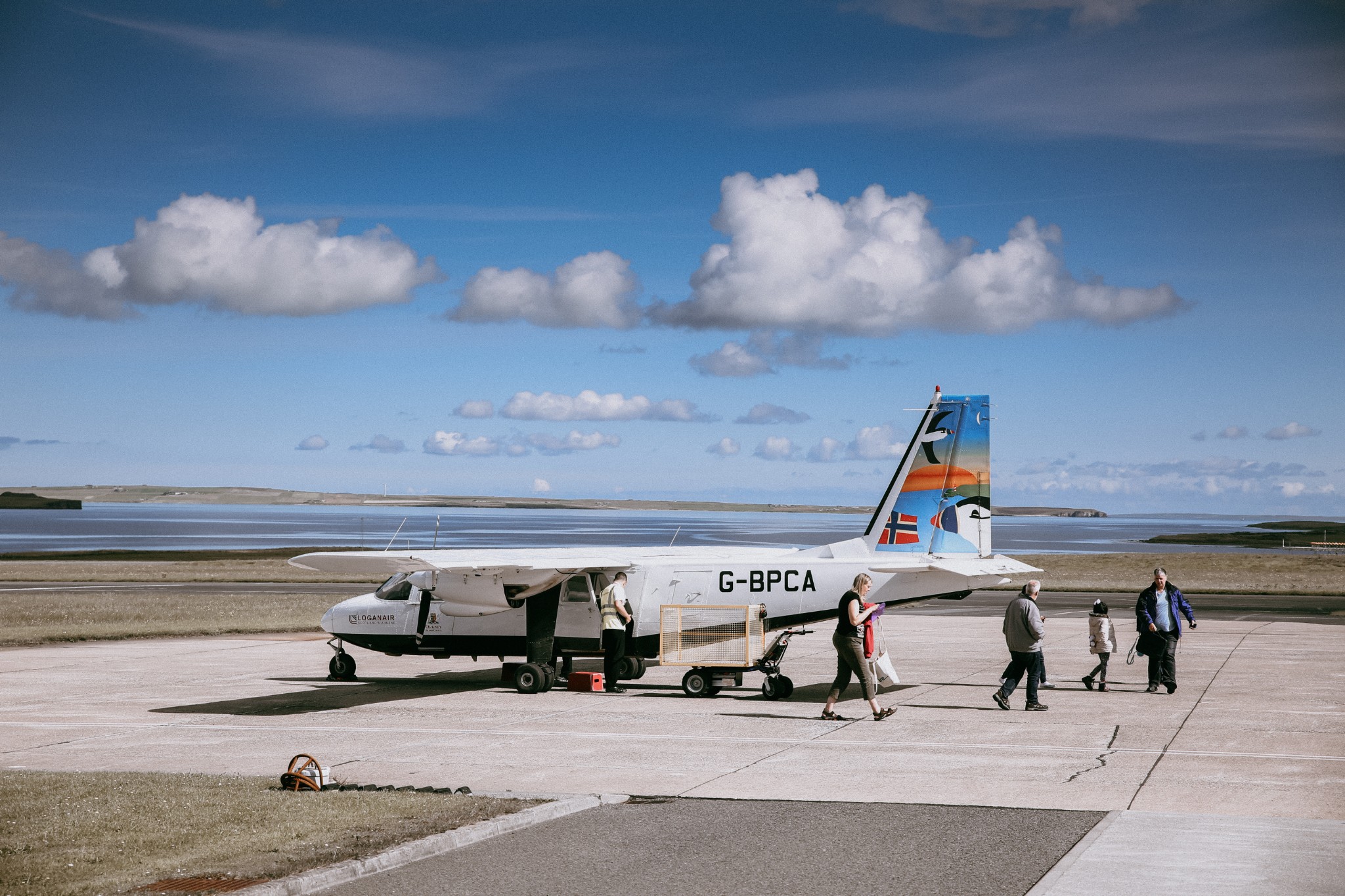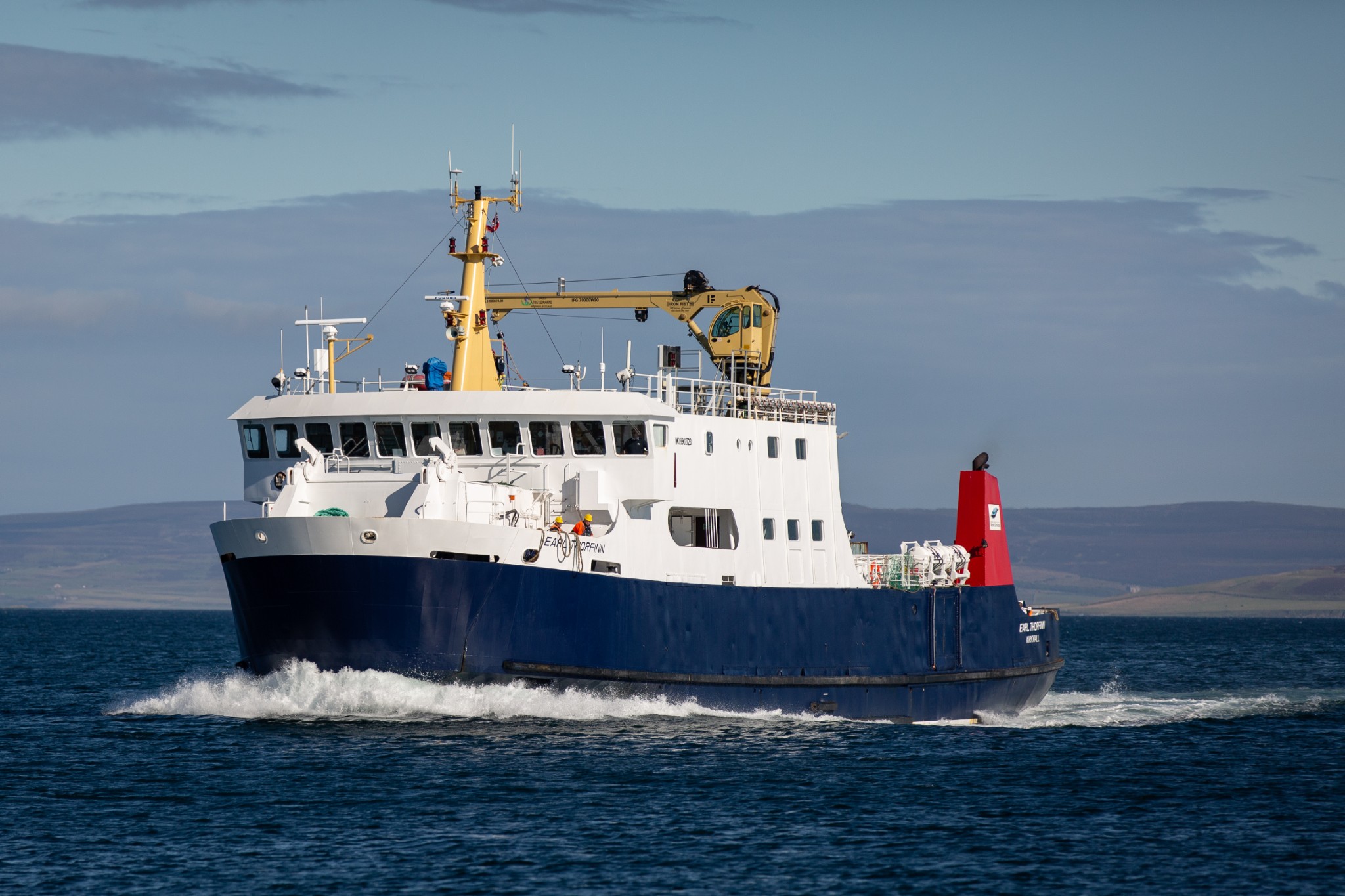Found further north than the southern tip of Norway, on the periphery of our archipelago, North Ronaldsay is a special place. It has a real connection to the past, but its islanders also look to the future.
The island is famed for its rare breed of seaweed-eating sheep. These hardy and colourful characters live almost entirely on the wild shoreline, feeding on a diet of seaweed. Their meat is highly prized by chefs for its uniquely gamely flavour and is exported across the country. But even at just three miles long and two miles wide, the island still has more to offer visitors keen to experience its distinct culture and traditions.
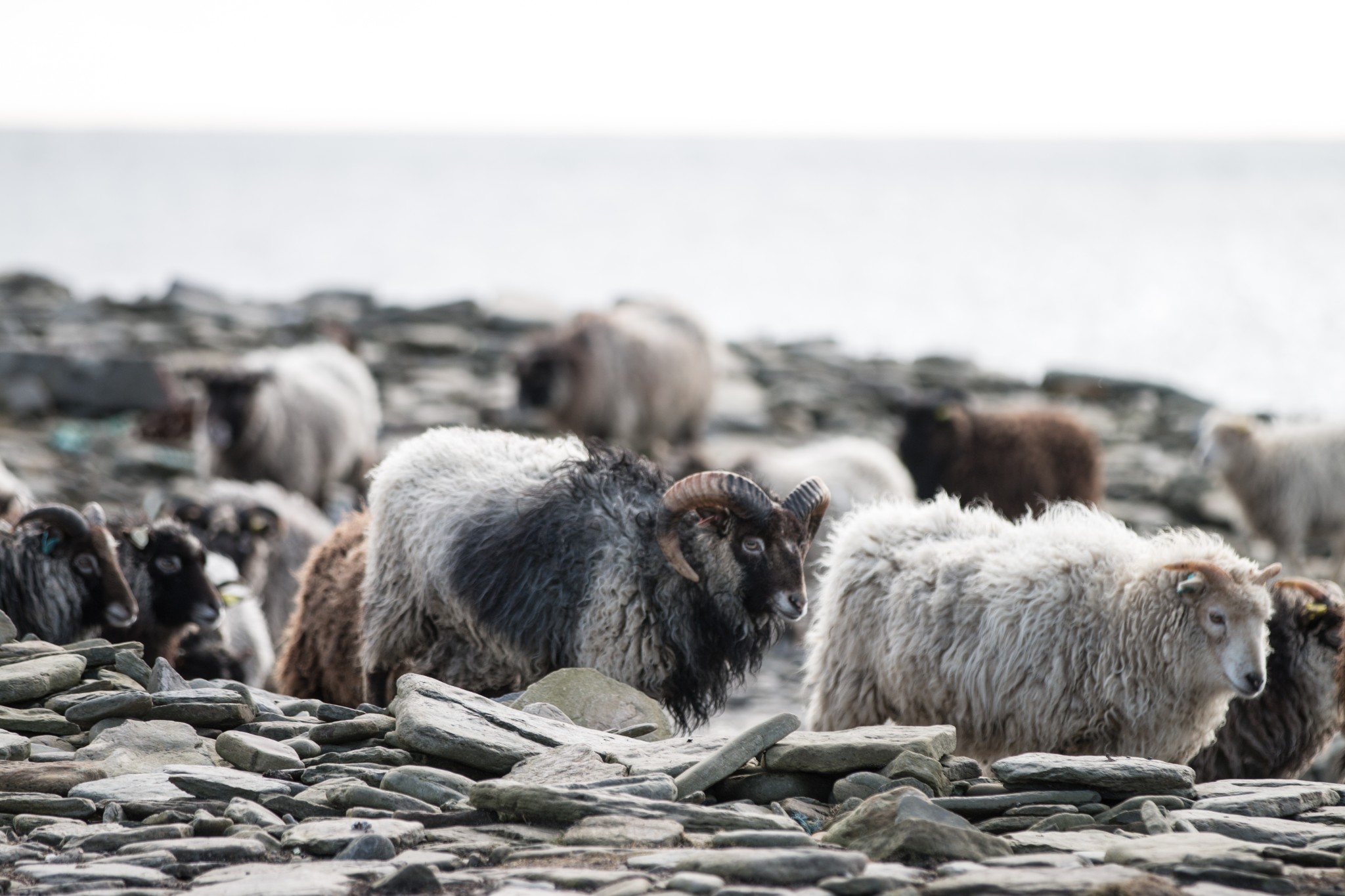
Some of North Ronaldsay's seaweed-eating sheep There is a feeling of arriving in another world when the tiny Loganair Islander aircraft touches down at the North Ronaldsay airfield. The landscape here just feels different to elsewhere in Orkney, not least because of the drystone dyke that encircles the island. The 13-mile-long structure was built in the 19th century to keep the famous sheep on the shore. No matter where you are in the island, you won’t be far from a stretch of the wall. Stormy weather and an ageing population has meant that some parts of the dyke have fallen into disrepair, leading to the island’s Trust employing a full-time ‘sheep dyke warden’ in the past to carry out repairs and restoration. You can still volunteer to help rebuild the dyke, or join in the annual North Ronaldsay Sheep Festival, where visitors get the chance to celebrate the rare breed and become part of the community during their time here.
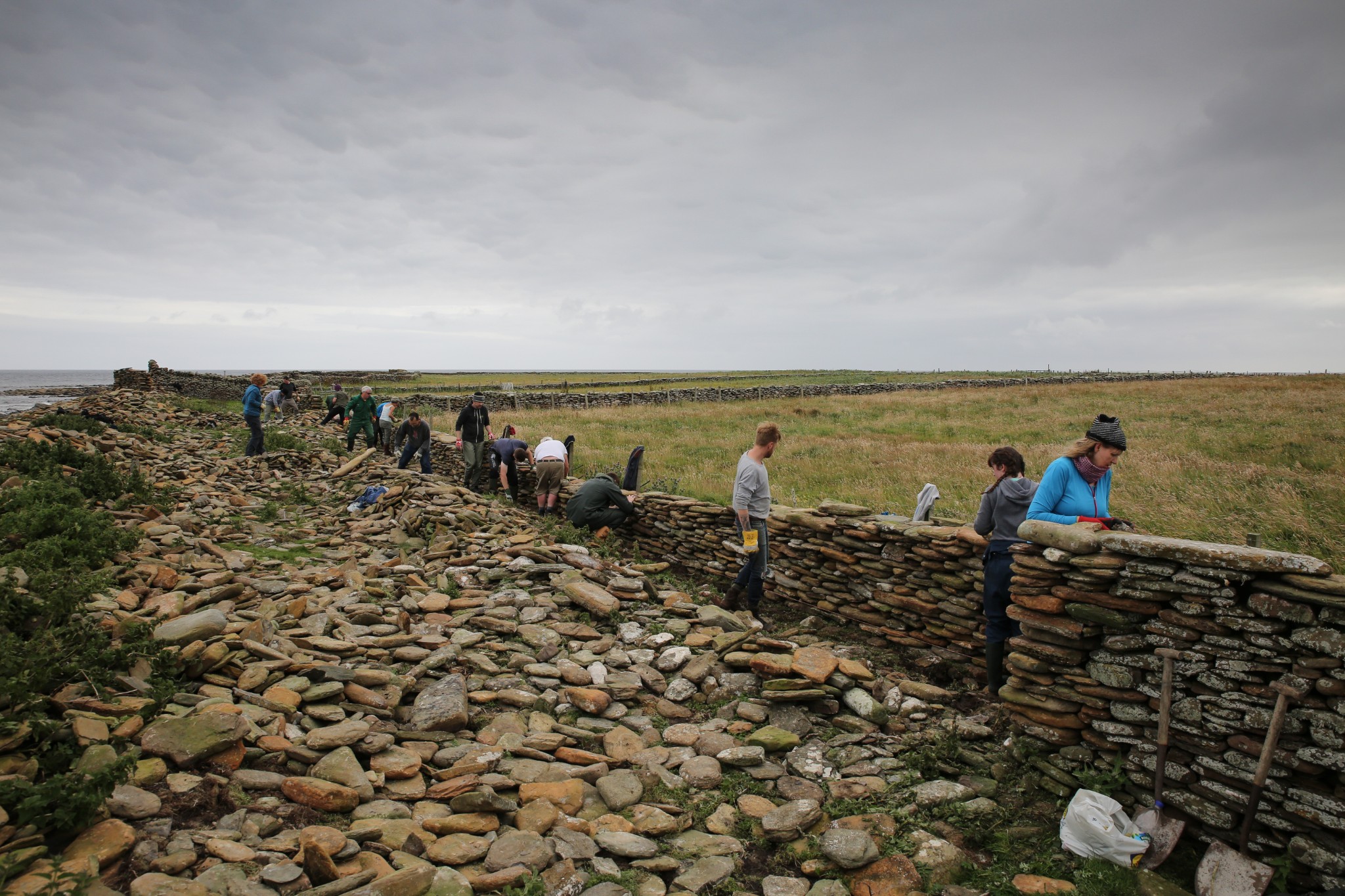
Dyke-building at the North Ronaldsay Sheep Festival The north end of the island is dominated by the North Ronaldsay Lighthouse, the tallest land-based building of its kind in the UK. Tours are available with the view from the top well worth the 176 steps it takes to get there. The complex of buildings at the lighthouse includes self-catering accommodation. The island’s woollen mill is housed in the former engine room – tours are available where you can see the process of turning the fleece of the seaweed-eating sheep into the finished yarn.
Nearby you’ll see the Old Beacon, the island’s first lighthouse, completed in 1789. The building is closed but is an imposing reminder of North Ronaldsay’s maritime heritage. The island archive at the New Kirk also offers a fascinating glimpse into the island’s history.
North Ronaldsay is one of the best places to spot migratory birds. Its location on migration routes sees it act as a staging post for birds heading north and south as the seasons dictate. Species from Africa and Asia are seen here, as well as the likes of whooper swans, wrens, wheatear, hen-harriers, short-eared owls and much more. The North Ronaldsay Bird Observatory is a real hub for the island, featuring accommodation, shop and café, and plenty of birdwatching acquaintances to share sightings with.
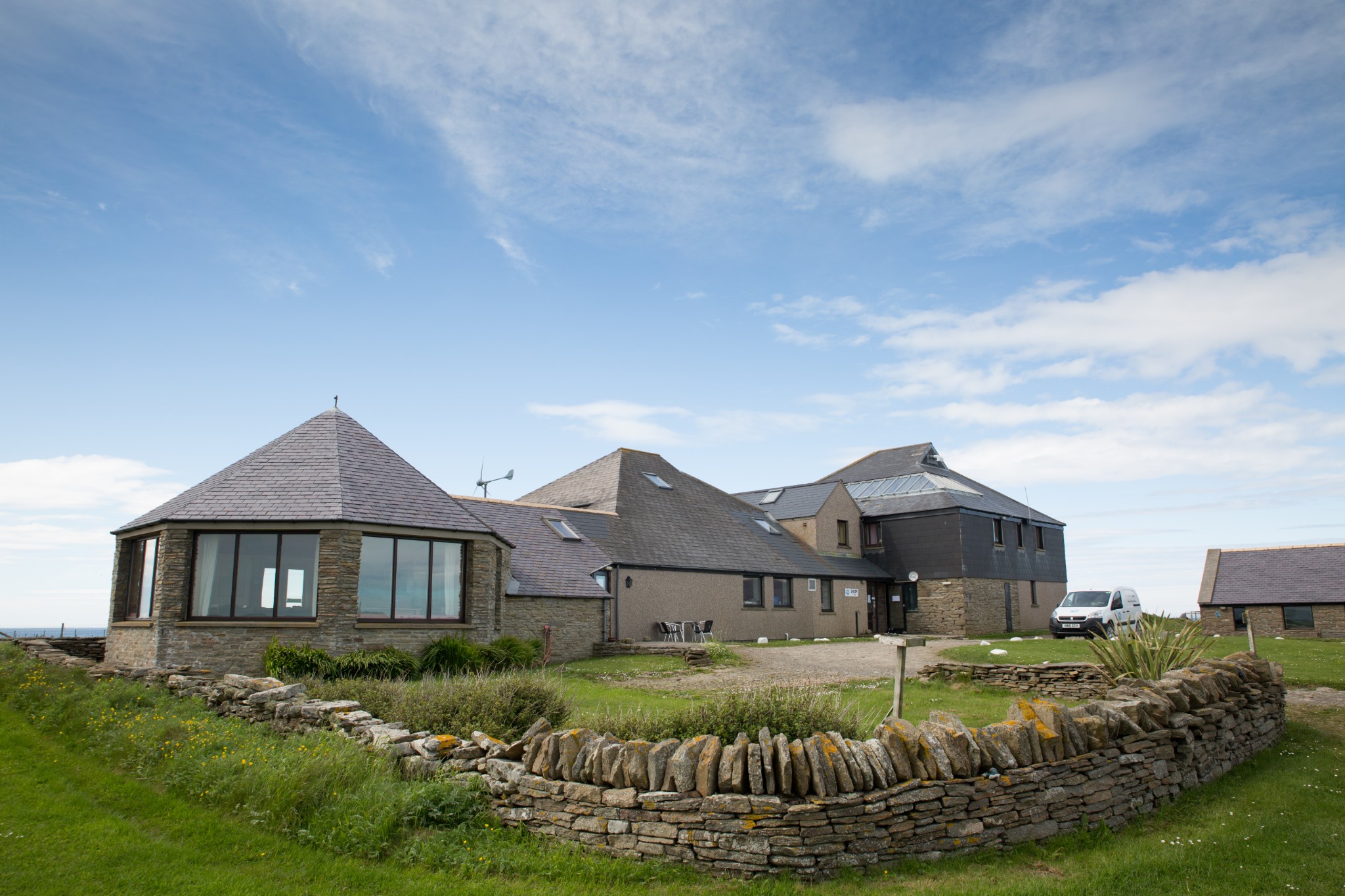
The North Ronaldsay Bird Observatory Aside from the main sites, North Ronaldsay is the perfect place to slow down, unwind and get a feel for the pace of island life. You could walk around the island in a day, stopping off to enjoy the views, have a wild swim at Nouster or watch the seals at the lighthouse, or just to spend some time in the wide-open spaces offered by the low-lying landscape. Bike hire is available too - they can be picked up at the airport for £10 per day and can be booked by messaging 07778 182 844, or e-mailing bikehire@northronaldsay.co.uk
Find out more on the North Ronaldsay website.
North Ronaldsay is Orkney's most northerly community, but that doesn't make it remote.
In fact, daily flights to and from this unique island keep it connected to Kirkwall and the rest of the world. The route takes you over the north isles, offering spectacular views of the likes of Shapinsay, Stronsay and Sanday en-route.
There's also a weekly ferry service from Kirkwall too.
